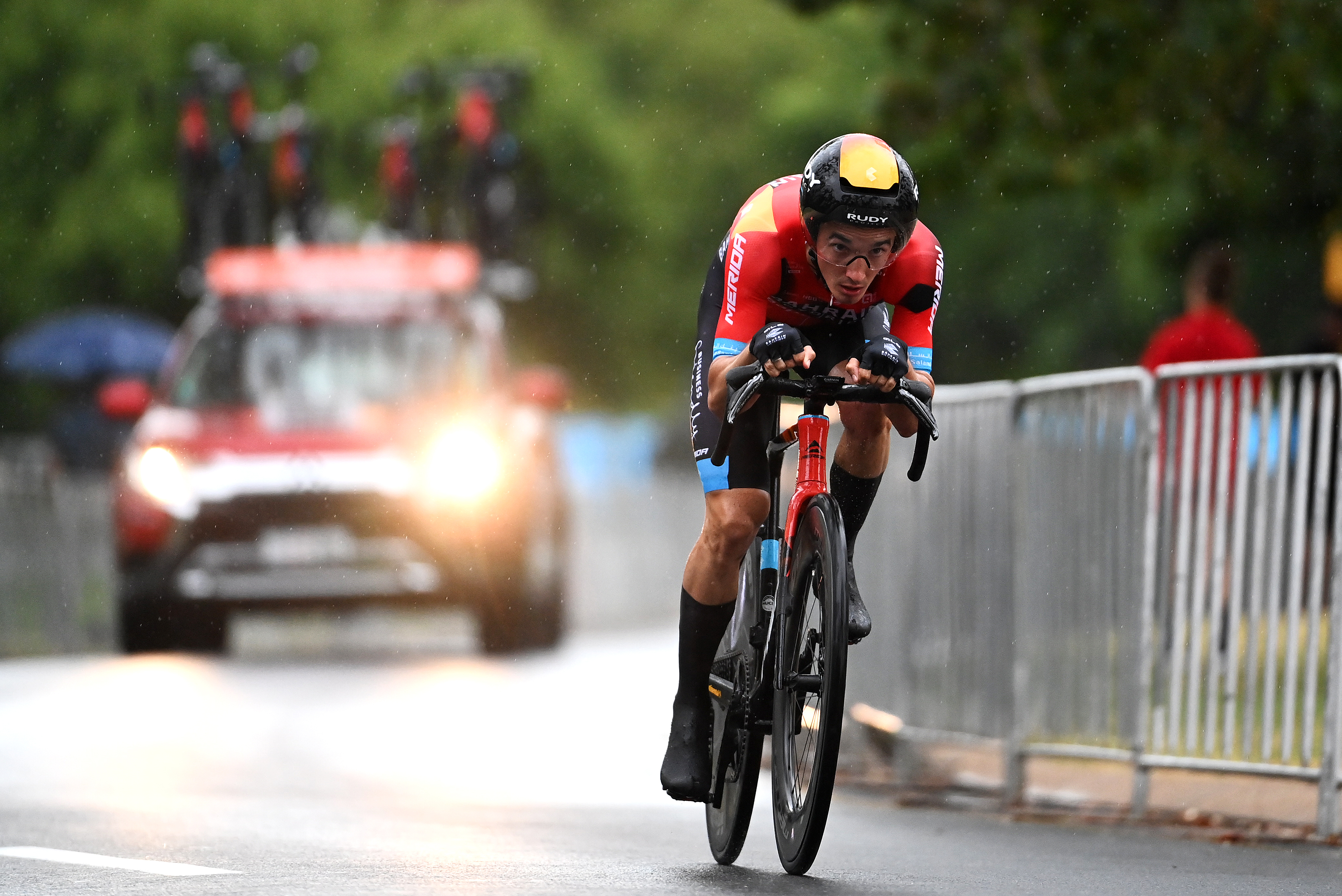
The UCI has revealed it will ban the hugely popular inward facing brake levers in 2024, suggesting the lever position "constitutes a modification of the product beyond its intended use."
The UCI revealed their intentions in a press release after the annual WorldTour seminar that took place this week in Lausanne.
Riders rotate the shifter/brake levers inward to create a narrower position for the rider's hands. Some prefer the angled contact for ergonomic reasons, whereas others do it for the potential aerodynamic gain.
The modification is one employed by many professional riders, but perhaps most memorably by Pello Bilbao at the 2023 Tour Down Under.
In that race, a city-centre prologue saw riders modify their road bikes to the extreme after organisers banned time trial bikes due to the economic expense of bringing a fleet of TT bikes to the race from Europe. Bilbao, targeting victory in the prologue, employed time trial wheels, huge gears, and wildly-turned-in levers to create as narrow a hand position as possible.
Bilbao's position was UCI legal because forearms support is allowed in time trials and he was able to touch the brake levers or hoods with at least the finger tips.

It's unclear if a limit will be set on the angle of the levers by the UCI, or whether it will be at the relevant race commissaire's discretion. In 2022, the UCI published the incoming changes to the Technical Regulations as early as the end of November, but no such release has been made public so far in 2023 ahead of the 2024 season.
The wording in the statement uses the phrase "extreme inward inclination," rather than any set number of degrees away from parallel.
"...on the topic of safety, an explanation was given on the UCI’s work with the cycling industry to create a clear regulation concerning the extreme inward inclination of brake levers," began the statement.
As for why, the UCI believes that such inward inclination of the levers can limit the riders' ability to brake, thus causing a safety risk, suggesting that it "constitutes a modification of the product beyond its intended use."
As a result, it said "such positioning will be restricted in 2024," before adding that as of January 2025, "new regulations will come into force requiring compliance with the installation guidelines established by brake lever manufacturers."
The move comes in a continual reworking of the UCI's rules around handlebars and riders' hand position. In early 2021, the UCI banned the forearms on handlebars position commonly referred to as 'puppy paws'. Then at the start of 2023, it limited the minimum width (outside to outside) of handlebars to 35cm; a limit which had yet to be found even by Jan Willem Van Schip, whose super-narrow track handlebars created headlines in 2019.
Ironically, despite riders' primary motivations being aerodynamic gain, it has been proven that straight levers paired with narrower handlebars are faster than wide bars paired with turned in levers, since the total frontal area is smaller.
As a result, assuming this rule is either laid out in detail or enforced strictly, don't be surprised to see more aero-attentive riders such as Bilbao simply swapping to narrower handlebars to begin with.







